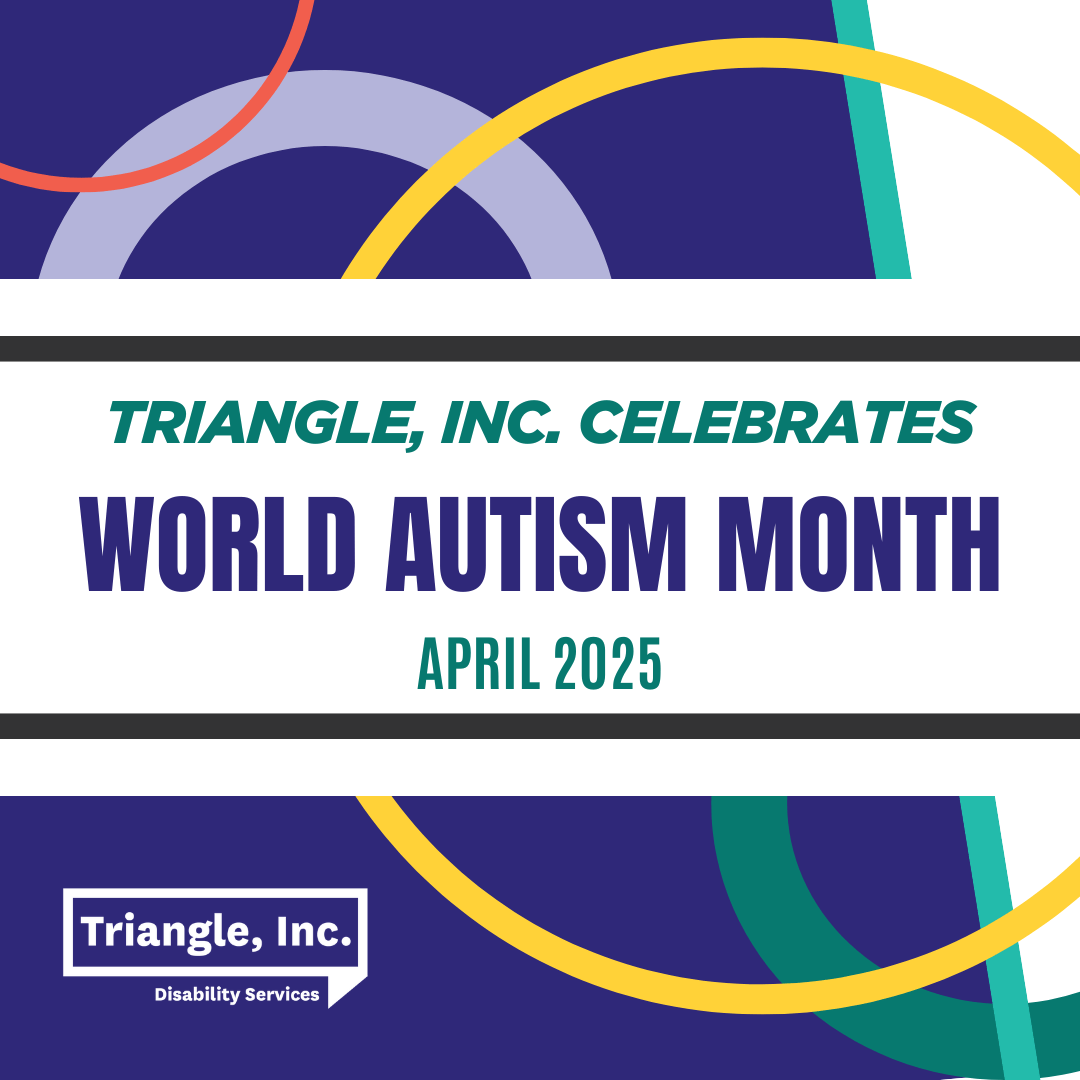World Autism Month: Learning About Accommodations
This is a special post written by Charles Warren, Curriculum Developer at Triangle. Charlie is also a member of Triangle’s Racial Equity Committee (REC) and Disability Justice Task Force (DJTF). As part of our commitment to the work of the REC and DJTF, we will be sharing more information with you on subjects related to racial equity and disability justice. This post continues our series dedicated to calling attention to the contributions of people with disabilities to American history.
There are many autistic strengths that are beneficial in the workplace: pattern recognition, detail-oriented thinking, systematic approaches, problem-solving, precision, diligence, and the ability to hyperfocus. And there are also many challenges to navigating a neurotypical workplace as a neurodivergent person: sensory and communication differences, stimming (repetitive motions and behaviors that are self-regulatory), masking (conscious or unconscious efforts to reduce the appearance of characteristics associated with autism to fit in), an increased likelihood of co-occurring medical conditions, complex trauma, and more. Building sustainable careers involves finding the right balance of strengths, challenges, and growth for any person, and this is especially true for autistic people.
Thoughtful accommodations are key for enabling individuals to find the most success in their chosen profession. While there is no one way to be autistic, there are accommodations that many autistic people find generally helpful. It is important for employees with disabilities to practice the skill of clearly articulating the accommodations that are beneficial to them. On an individual basis, the self-knowledge around what is helpful is gained over a lifetime. For organizations, institutional knowledge around how to support employees with disabilities is built by active engagement over time. A few examples of accommodations are working remotely, access to noise-canceling headphones, normalization of stims, trauma-informed practices, supervisors committed to learning individual communication styles, and opportunities for representation in committees and in leadership. When this knowledge is built together by employers and employees, it has a very powerful impact.
Asking for accommodations can be intimidating or feel awkward. It involves the disclosure of potentially sensitive personal information, and many people have not had experiences that taught and normalized accommodation requests. If you are an employee or an employer and want to increase your knowledge of accommodations for people with all different types of disabilities, click here to view a comprehensive list of disabilities and accommodations from JAN, the Job Accommodation Network.
